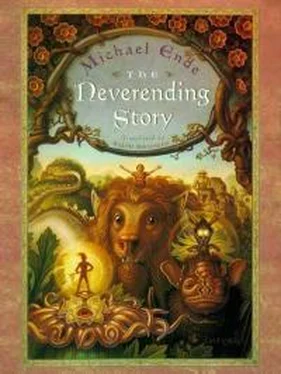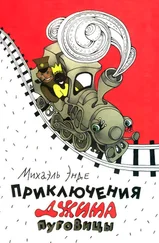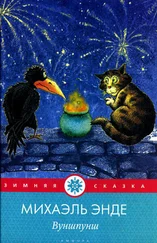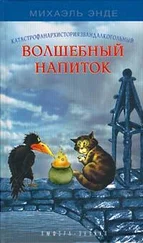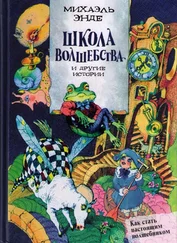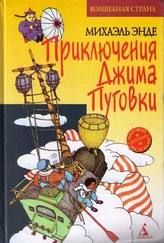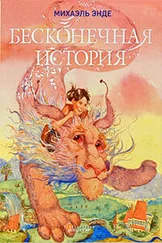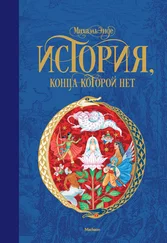Михаэль Энде - The Neverending Story
Здесь есть возможность читать онлайн «Михаэль Энде - The Neverending Story» весь текст электронной книги совершенно бесплатно (целиком полную версию без сокращений). В некоторых случаях можно слушать аудио, скачать через торрент в формате fb2 и присутствует краткое содержание. Год выпуска: 1997, ISBN: 1997, Издательство: Dutton Children's Books, Жанр: Детская проза, fairy_fantasy, на английском языке. Описание произведения, (предисловие) а так же отзывы посетителей доступны на портале библиотеки ЛибКат.
- Название:The Neverending Story
- Автор:
- Издательство:Dutton Children's Books
- Жанр:
- Год:1997
- ISBN:9780525457589
- Рейтинг книги:3 / 5. Голосов: 1
-
Избранное:Добавить в избранное
- Отзывы:
-
Ваша оценка:
- 60
- 1
- 2
- 3
- 4
- 5
The Neverending Story: краткое содержание, описание и аннотация
Предлагаем к чтению аннотацию, описание, краткое содержание или предисловие (зависит от того, что написал сам автор книги «The Neverending Story»). Если вы не нашли необходимую информацию о книге — напишите в комментариях, мы постараемся отыскать её.
The Neverending Story — читать онлайн бесплатно полную книгу (весь текст) целиком
Ниже представлен текст книги, разбитый по страницам. Система сохранения места последней прочитанной страницы, позволяет с удобством читать онлайн бесплатно книгу «The Neverending Story», без необходимости каждый раз заново искать на чём Вы остановились. Поставьте закладку, и сможете в любой момент перейти на страницу, на которой закончили чтение.
Интервал:
Закладка:
“No,” said Falkor, “she’s not like us. She’s not a creature of Fantastica. We all exist because she exists. But she’s of a different kind.”
“Then is she . . .” Atreyu hesitated. “Is she human?”
“No,” said Falkor, “she’s not human.”
“Well then . . .” And Atreyu repeated his question. “Who is she?”
After a long silence Falkor answered: “No one in Fantastica knows, no one can know. That’s the deepest secret of our world. I once heard a wise man say that if anyone were to know the whole answer, he would cease to exist. I don’t know what he meant. That’s all I can tell you.”
“And now,” said Atreyu, “she’ll die and we’ll die with her, and we’ll never know her secret.”
This time Falkor made no answer, but a smile played around the corners of his leonine mouth, as though to say: Nothing of the kind will happen.
After that they spoke no more.
A little later they flew over the outer edge of the “Labyrinth,” the maze of flower beds, hedges, and winding paths that surrounded the Ivory Tower on all sides. To their horror, they saw that there too the Nothing had been at work. True, it had touched only small spots in the Labyrinth, but those spots were all about. The once bright-colored flower beds and shrubbery in between were now gray and withered. The branches of once graceful little trees were gnarled and bare. The green had gone out of the meadows, and a faint smell of rot and mold rose up to the newcomers. The only colors left were those of swollen giant mushrooms and of garish, poisonous-looking blooms that suggested nothing so much as the figments of a maddened brain. Enfeebled and trembling, the innermost heart of Fantastica was still resisting the inexorable encroachment of the Nothing.
But the Ivory Tower at the center still shimmered pure, immaculately white.
Ordinarily flying messengers landed on one of the lower terraces. But Falkor reasoned that since neither he nor Atreyu had the strength to climb the long spiraling street leading to the top of the Tower, and since time was of the essence, the regulations and rules of etiquette could reasonably be ignored. He therefore decided on an emergency landing. Swooping down over the ivory buttresses, bridges, and balustrades, he located, just in time, the uppermost end of the spiraling High Street, which lay just outside the palace grounds. Plummeting to the roadway, he went into a skid, made several complete turns, and finally came to a stop tail-first.
Atreyu, who had been clinging with both arms to Falkor’s neck, sat up and looked around. He had expected some sort of reception, or at least a detachment of palace guards to challenge them—but far and wide there was no one to be seen. All the life seemed to have gone out of the gleaming white buildings roundabout.
“They’ve all fled!” he thought. “They’ve left the Childlike Empress alone. Or she’s already . . .”
“Atreyu,” Falkor whispered. “You must give the Gem back to her.”
Falkor removed the golden chain from his neck. It fell to the ground.
Atreyu jumped down off Falkor’s back—and fell. He had forgotten his wound. He reached for the Glory and put the chain around his neck. Then, leaning on the dragon, he rose painfully to his feet.
“Falkor,” he said. “Where must I go?”
But the luckdragon made no answer. He lay as though dead.
The street ended in front of an enormous, intricately carved gate which led through a high white wall. The gate was open.
Atreyu hobbled through it and came to a broad, gleaming-white stairway that seemed to end in the sky. He began to climb. Now and then he stopped to rest. Drops of his blood left a trail behind him.
At length the stairway ended. Ahead of him lay a long gallery. He staggered ahead, clinging to the balustrade for support. Next he came to a courtyard that seemed to be full of waterfalls and fountains, but by then he couldn’t be sure of what he was seeing. He struggled forward as in a dream. He came to a second, smaller gate; then there was a long, narrow stairway, which took him to a garden where everything—trees, flowers, and animals—was carved from ivory. Crawling on all fours, he crossed several arched bridges without railings which led to a third gate, the smallest of all. He dragged himself through it on his belly and, slowly raising his eyes, saw a dome-shaped hall of gleaming-white ivory, and on top of it the Magnolia Pavilion. There was no path or stairway leading up to it.
Atreyu buried his head in his hands.
No one who reaches or has reached that pavilion can say how he got there. The last stretch of the way must come to him as a gift.
Suddenly Atreyu was in the doorway. He went in—and found himself face to face with the Golden-eyed Commander of Wishes.
She was sitting, propped on many cushions, on a soft round couch at the center of the great round blossom. She was looking straight at him. She seemed infinitely frail and delicate. Atreyu could see how ill she was by the pallor of her face, which seemed almost transparent. Her almond-shaped eyes, the color of dark gold, were serene and untroubled. She smiled. Her small, slight body was wrapped in an ample silken gown which gleamed so white that the magnolia petals seemed dark beside it. She looked like an indescribably beautiful little girl of no more than ten, but her long, smoothly combed hair, which hung down over her shoulders, was as white as snow.
Bastian gave a start.
Something incredible had happened.
Thus far he had been able to visualize every incident of the Neverending Story. Some of them, it couldn’t be denied, were very strange, but they could somehow be explained. He had formed a clear picture of Atreyu riding on the luckdragon, of the Labyrinth and the Ivory Tower.
These pictures, however, existed only in his imagination. But when he came to the
Magnolia Pavilion, he saw the face of the Childlike Empress—if only for a fraction of a second, for the space of a lightning flash. And not only in his thoughts, but with his eyes! It wasn’t his imagination, of that Bastian was sure. He had even seen details that were not mentioned in the description, such as her eyebrows, two fine lines that might have been drawn with India ink, arching over her golden eyes, or her strangely elongated earlobes, or the way her head tilted on her slender neck. Bastion knew that he had never in all his life seen anything so beautiful as this face. And in that same moment he knew her name: Moon Child. Yes, beyond a doubt, that was her name.
And Moon Child had looked at him—at him, Bastian Balthazar Bux.
She had looked at him with an expression that he could not interpret. Had she too been taken by surprise? Had there been a plea in that look? Or longing? Or . . . what could it be?
He tried to remember Moon Child’s eyes, but was no longer able to.
He was sure of only one thing: that her glance had passed through his eyes and down into his heart. He could still feel the burning trail it had left behind. That glance, he felt, was embedded in his heart, and there it glittered like a mysterious jewel. And in a strange and wonderful way it hurt.
Even if Bastian had wanted to, he couldn’t have defended himself against this thing that had happened to him. However, he didn’t want to. Oh no, not for anything in the world would he have parted with that jewel. All he wanted was to go on reading, to see Moon Child again, to be with her.
It never occurred to him that he was getting into the most unusual and perhaps the most dangerous of adventures. But even if he had known this, he wouldn’t have dreamed of shutting the book.
With a trembling forefinger he found his place and went on reading.
The clock in the belfry struck ten.

Интервал:
Закладка:
Похожие книги на «The Neverending Story»
Представляем Вашему вниманию похожие книги на «The Neverending Story» списком для выбора. Мы отобрали схожую по названию и смыслу литературу в надежде предоставить читателям больше вариантов отыскать новые, интересные, ещё непрочитанные произведения.
Обсуждение, отзывы о книге «The Neverending Story» и просто собственные мнения читателей. Оставьте ваши комментарии, напишите, что Вы думаете о произведении, его смысле или главных героях. Укажите что конкретно понравилось, а что нет, и почему Вы так считаете.
